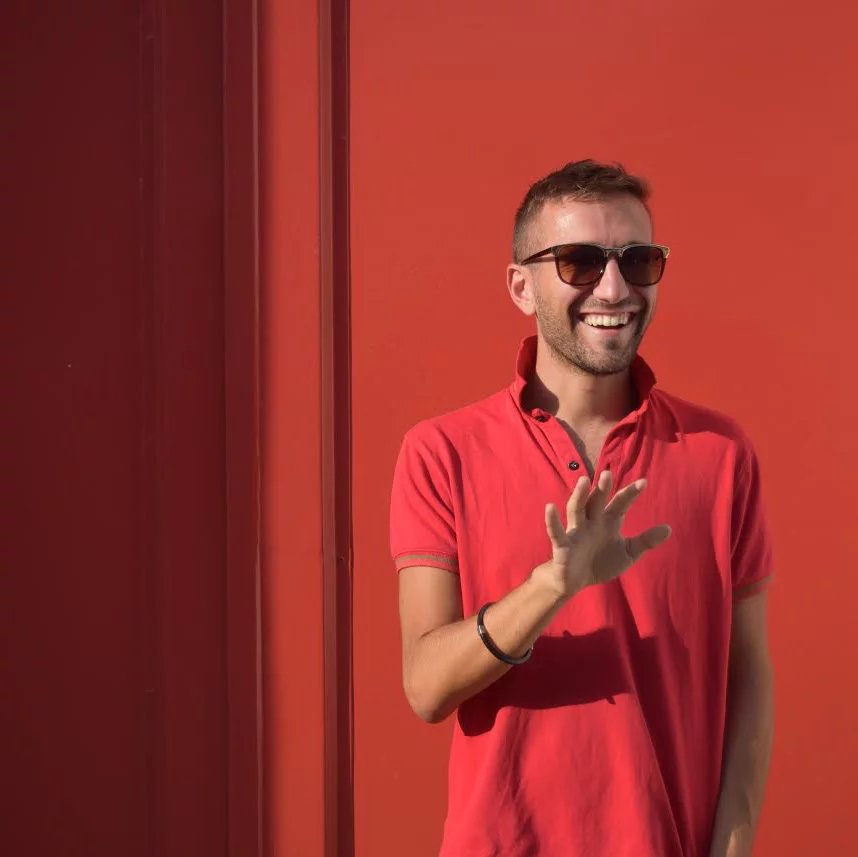Algeria
The largest country in Africa. Algeria is a regional and middle power. The North African country supplies large amounts of natural gas to Europe, and energy exports are the backbone of the economy.
Algeria (Arabic: الجزائر al-Jazā’ir; Dzayer; French: Algérie), officially the People’s Democratic Republic of Algeria, is a sovereign state in North Africa on the Mediterranean coast.
The capital and most populous city is Algiers, located in the far north of the country. With an area of 2,381,741 square kilometres (919,595 sq mi), Algeria is the tenth-largest country in the world, and the largest in Africa since South Sudan became independent from Sudan in 2011.
Algeria is bordered to the northeast by Tunisia, to the east by Libya, to the west by Morocco, to the southwest by the Western Saharan territory, Mauritania, and Mali, to the southeast by Niger, and to the north by the Mediterranean Sea.
The country is a semi-presidential republic consisting of 48 provinces and 1,541 communes (counties). Abdelaziz Bouteflika has been President since 1999.
History
Evidence of the early human occupation of Algeria is demonstrated by the discovery of 1.8 million year old Oldowan stone tools found at Ain Hanech in 1992.
A melting pot of cultural influences, Algeria is a highly underrated North African tourist destination that has a lot to offer the historically, and culturally, minded traveler. With a veritable treasure trove of past influences ranging from French to Spanish and Berber to Roman, it’s no wonder the ruins here are almost as good as the architecture that still remains. Predominantly Roman, take your pick from our list of the eight coolest ancient ruins to visit in Algeria.
For several centuries Algeria was ruled by the Romans, who founded many colonies in the region. Like the rest of North Africa, Algeria was one of the breadbaskets of the empire, exporting cereals and other agricultural products. Saint Augustine was the bishop of Hippo Regius (modern-day Algeria), located in the Roman province of Africa.
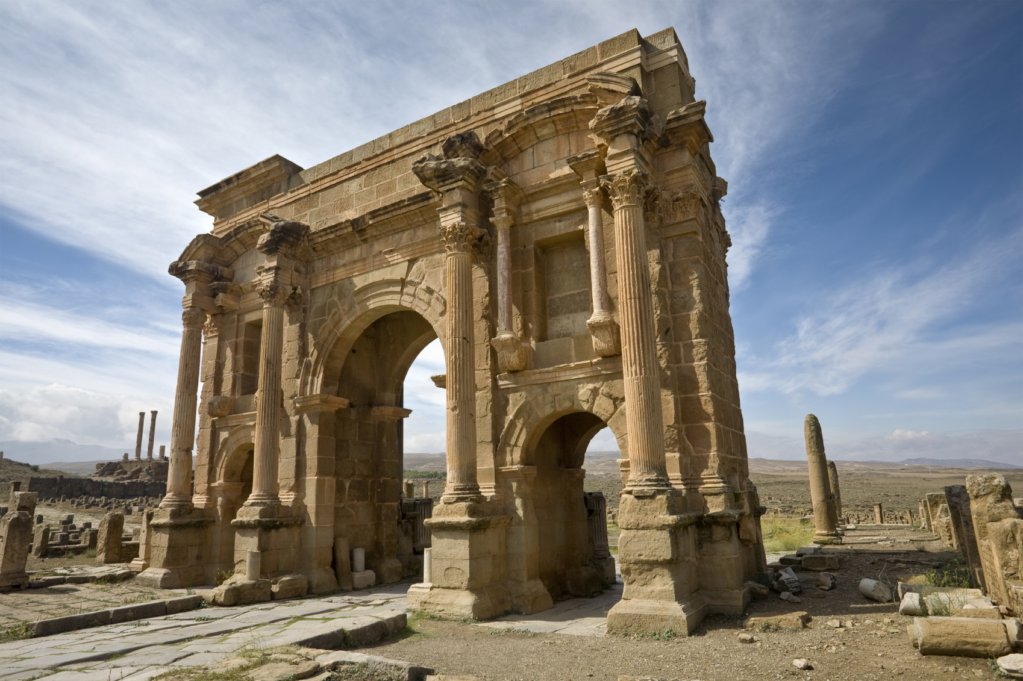
Tourism
Algeria benefits from important natural assets such as its beaches in general still in the wild, landscapes and zones like the Algerian Desert.
Algeria is the largest country on the African continent and the 10th largest country in terms of total area. Located in North Africa, one of the main tourist attractions is the Sahara, the second largest desert in the world. Some sand dunes can reach 180 meters in height.
According to Gallup‘s Law and Order Index, which measures personal safety as well as personal experiences of crime and law enforcement, Algeria ranked 7th in the world’s safest countries for 2017.
The development of the tourism sector in Algeria had previously been hampered by a lack of facilities, but since 2004 a broad tourism development strategy has been implemented resulting in many hotels of a high modern standard being built.
There are several UNESCO World Heritage Sites in Algeria including Al Qal’a of Beni Hammad, the first capital of the Hammadid empire; Tipasa, a Phoenician and later Roman town; and Djémila and Timgad, both Roman ruins; M’Zab Valley, a limestone valley containing a large urbanized oasis; also the Casbah of Algiers is an important citadel. The only natural World Heritage Sites is the Tassili n’Ajjer, a mountain range.
Algeria benefits from important natural assets such as its beaches in general still in the wild, landscapes and zones like the Algerian Desert. There are 10 national parks in Algeria, including the Tassili Cultural Park (100,000 ha) or the Ahaggar Cultural Park (Hoggar) (380,000 ha).
Hiking enthusiasts have access to the vast mountains of Kabylia. Despite what is thought, Algeria also has a ski area in Tikjda as well as spas.
Architecturally, there are strong Berber, Arabic, Spanish and French influences following colonization, but also more contemporary works. The main post office in Algiers remains a remarkable monument of the neo-Moorish type, the work of Jules Voinot and Marius Toudoire. The Casbah of Algiers is also a place of visit classified as a world heritage of UNESCO since 1982.
Economy
Algeria is classified as an upper middle income country by the World Bank. Algeria's currency is the dinar (DZD). In 2014, the Algerian economy expanded by 4%, up from 2.8% in 2013. Growth was driven mainly by the recovering oil and gas sector and further economic expansion of 3.9% is forecast in 2015 and 4.0% in 2016.
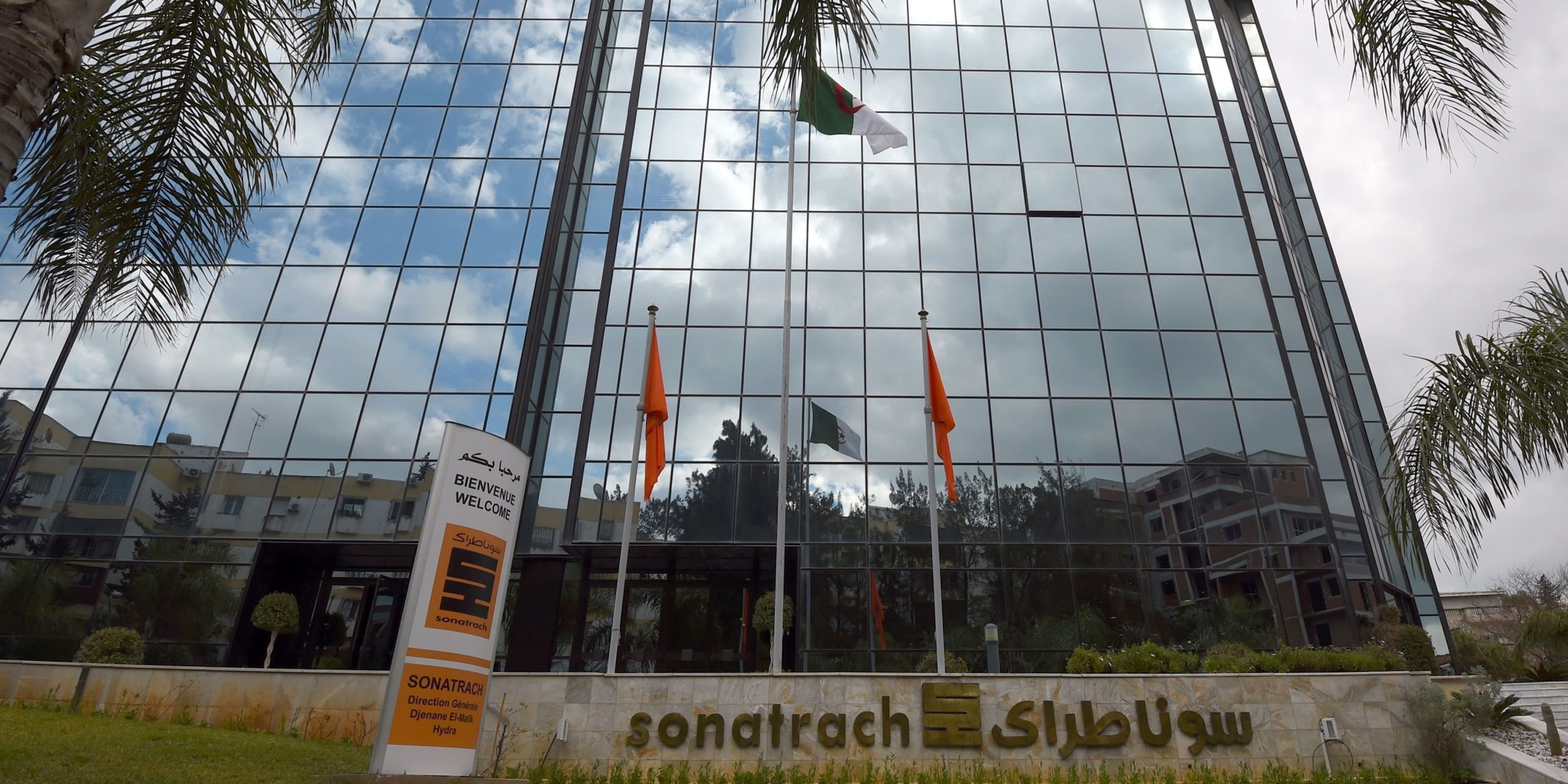
In 2012, the Algerian economy grew by 2.5%, up slightly from 2.4% in 2011. Excluding hydrocarbons, growth has been estimated at 5.8% (up from 5.7% in 2011). Inflation is increasing and is estimated at 8.9% (up from 4.49% in 2011). Despite the financial authorities’ good performance, thanks to modernisation reforms, the budget deficit widened to 3.3% of GDP in 2012 (as against 1.3% in 2011) due to the continuation of the expansionary fiscal policy initiated in 2011 to meet strong social demands in terms of purchasing power, jobs and housing. The oil and gas sector is the country’s main source of revenues, generated about 70% of total budget receipts. The economy is projected to grow by 3.2% in 2013 and by 4.0% in 2014. The country’s external position remained comfortable in 2012, with a trade surplus of about USD 27.18 billion.
The current-account surplus is estimated at 8.2% of GDP and official foreign-exchange reserves have been estimated at USD 190.7 billion at end-December 2012, or the equivalent of more than three years of imports of non-factor goods and services. Oil and gas export earnings made up more than 97% of total exports.
Algeria has enormous possibilities to boost its economic growth, including huge foreign-exchange reserves derived from oil and gas. A development strategy targeting stronger, sustained growth would create more jobs, especially for young people, and alleviate the housing shortage the country is facing. The national strategic option is therefore to revitalise the process intended to diversify the economy starting with the non-oil sector while deepening the reforms needed for the structural transformation of the economy.
Algeria has many diversified industries that contribute to meet local demands and some times to exportation. The food industry is one of the largest industrial sector in Algeria. Private companies generally dominate the food sector in Algeria with large companies such as Cevital, La Belle, Groupe Bimo, Hamoud Boualam, Ifri, Général Emballage.
The pharmaceutical industry is also present in Algeria, with the domination of state-owned company Saidal, as well as other small private companies. The local pharmaceutical industry covers 38% of local needs.
The mechanical industry has existed in Algeria for a long time, with the state-owned company SNVI (Société Nationale des Véhicules Industriels) being the largest producer of buses and industrial vehicles in the region. These vehicles are exported to the Maghreb, Africa, and the Middle East. Mercedes-Benz has also invested in Algeria in cooperation with a state-owned company to produce industrial and military vehicles. Deutz AG also invested to produce agricultural utilities.
In the electric and electronic industry, Algeria has made a great leap in the field compared to its neighbours. The Algerian region Bordj-Bou-Arreridj is the biggest electronic pole in Africa, local companies cover 83% of it needs and export other products, Algeria started producing some 100% home made electronic product including smartphones, tablets,TV, TV decoders, air conditioning products …, at least 16 big companies are active in the field, some of the companies are : Bya Electronic, HB Technologies, ZALA Computer, Cristor, Condor, Cobra, Continental électronique, Essalem Electronics, Samha, FRIGOR, BMS Electric, Bomare Company, etc.
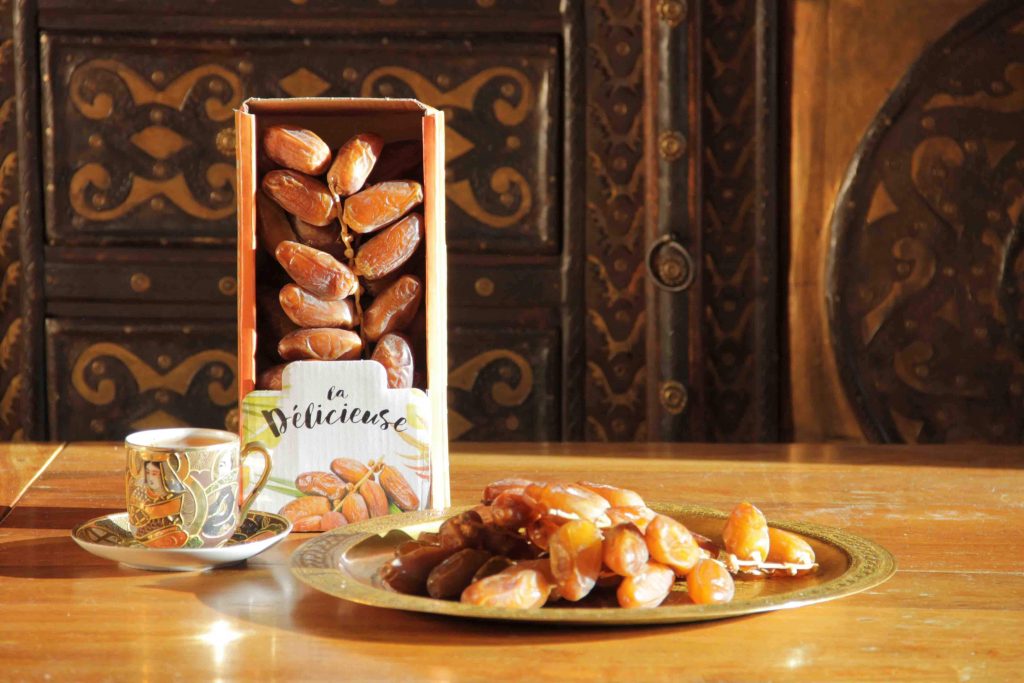
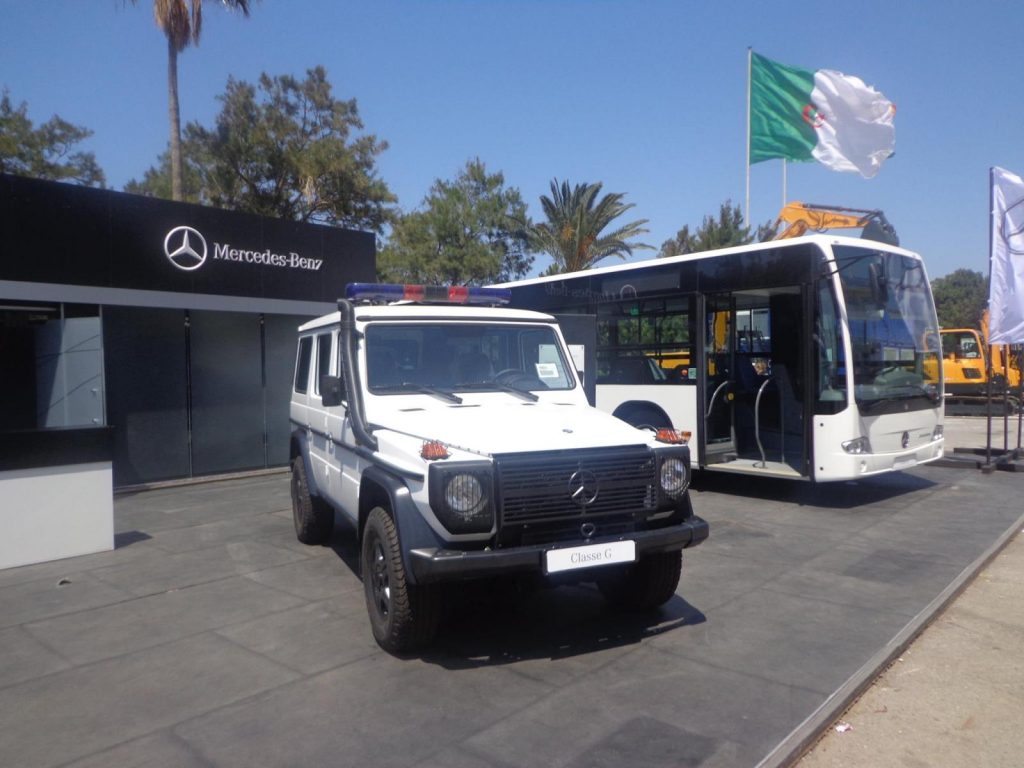
Music
Music in Algeria offers a rich diversity of genre: popular music (Chaabi), various genres of Andalusian classical music such as Sana'a, Gharnati music, Ma'luf, as well as classical Arabic, Bedouin, Berber music.
Algerian music is virtually synonymous with Raï among foreigners; the musical genre has achieved great popularity in France, Spain and other parts of Europe. For several centuries, Algerian music was dominated by styles inherited from Al-Andalus, eventually forming a unique North African twist on these poetic forms. Algerian music came to include suites called nuubaat (singular nuuba). Later derivatives include rabaab and hawzii.
Raï is a creative outlet to express love and romance. This music is a mix between Western music and Bedouin music.
Khaled known as Cheb khaled considered as the King of Rai music that he achieved international fame, rai music is very popular in Algeria Morocco France, Tunisia, turkey Libya Egypt and all Arabian countries.
Chaâbi music is a typically Algerian musical genre characterized by specific rhythms and of Qacidate (Popular poems) in Arabic dialect. The undisputed master of this music is El Hadj M’Hamed El Anka. The Constantinois Malouf style is saved by musician from whom Mohamed Tahar Fergani is a performer.
Ma’luf is the Andalusian classical music music of Constantine and is also well known in Tunisia and Libya, it is a very large number of diversified musical repertoire of Algeria. Nevertheless, malouf can not compete commercially with popular music, much of it Egyptian, and it has only survived because of the efforts of the Tunisian government and a number of private individuals. Malouf is still performed in public, especially at weddings and circumcision ceremonies, though recordings are relatively rare.
Sport
The most convenient and the most popular sport in Algeria is association football. The Algerian national team qualified for the FIFA World Cup in 1982, 1986, 2010 and most recently 2014.
Various games have existed in Algeria since antiquity. In the Aures, people played several games such as El Kherdba or El khergueba (chessvariant). Playing cards, checkers and chess games are part of Algerian culture. Racing (fantasia) and rifle shooting are part of cultural recreation of the Algerians.
The first Algerian and African gold medalist is Boughera El Ouafi in 1928 Olympics of Amsterdam in the Marathon. The second Algerian Medalist was Alain Mimoun in 1956 Summer Olympics in Melbourne. Several men and women were champions in athletics in the 1990s including Noureddine Morceli, Hassiba Boulmerka, Nouria Merah-Benida, and Taoufik Makhloufi, all specialized in middle-distance running.
Football is the most popular sport in Algeria. Several names are engraved in the history of the sport, including Lakhdar Belloumi, Rachid Mekhloufi, Hassen Lalmas, Rabah Madjer, Salah Assad and Djamel Zidane. The Algeria national football team qualified for the 1982 FIFA World Cup, 1986 FIFA World Cup, 2010 FIFA World Cup and 2014 FIFA World Cup. In addition, several football clubs have won continental and international trophies as the club ES Sétif or JS Kabylia. The Algerian Football Federation is an association of Algeria football clubs organizing national competitions and international matches of the selection of Algeria national football team.
Fifa World Cup: Highlights
Testimonials
Visit the site
